Boss Katana vs Line 6 Catalyst: Which should you buy?
Which of these killer affordable modeling amps is the best use of your budget?
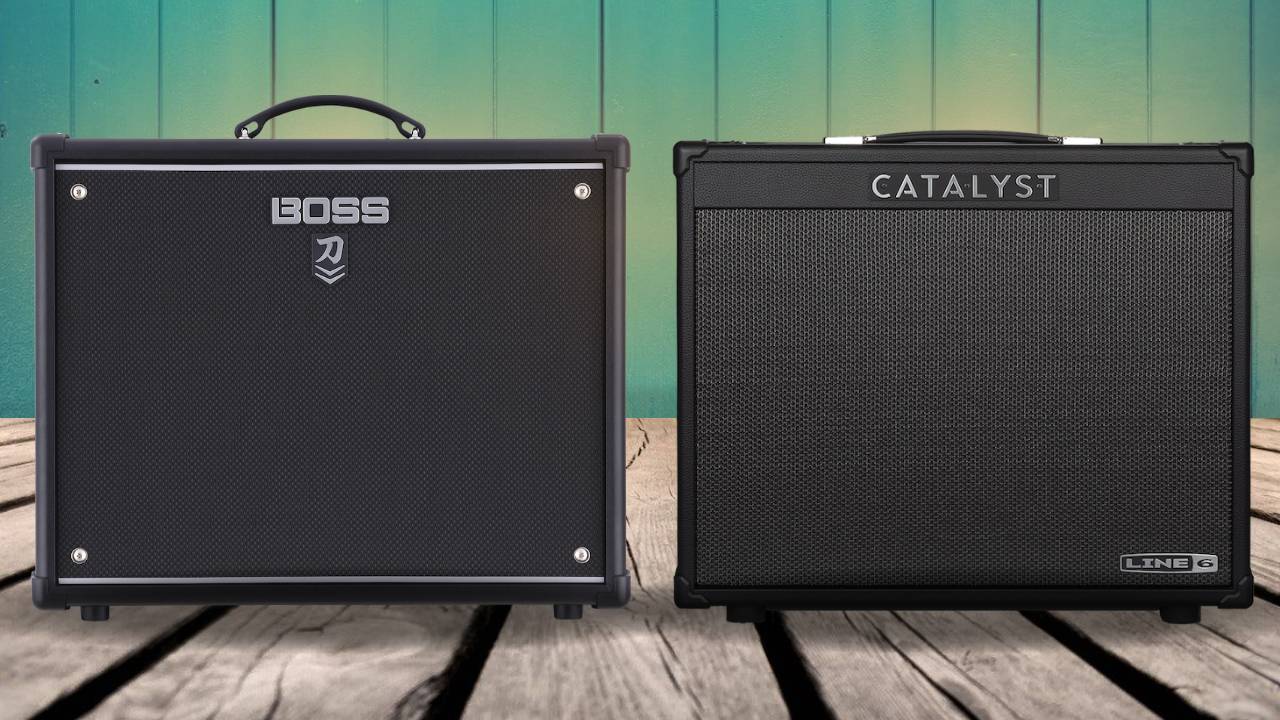
All the latest guitar news, interviews, lessons, reviews, deals and more, direct to your inbox!
You are now subscribed
Your newsletter sign-up was successful
Over the last 10 years or so, we’ve started seeing more and more modeling amps come onto the market. Modeling amps are great as they give us access to tones we’d only otherwise be able to get by owning a selection of expensive tube amps. Modeling amps are versatile, can cater for all sorts of musicians, and are usually reasonably priced too.
The Boss Katana has proven itself to be one of the most popular modeling amps out there, and it’s easy to see why. However, Line 6 has provided a major contender – the Catalyst. Both amps are similar in feature set and price, and really are some of the top modeling amps we’ve ever seen and played. So, what are the differences between the Boss Katana and the Line 6 Catalyst, and which one is better?
Boss Katana vs Line 6 Catalyst: At a glance
Both of these amps are so popular because they’re ideal for a range of players. They make for fantastic beginner amps as they’re easy to use, and they can teach newer players all about different types of amps and effects. Experienced players like them too because they offer a sound and feel that isn’t too dissimilar to a tube amp, but they’re really practical to have for practice at home.
Both the Katana and Catalyst have a few different amps within their lineups. The Katana consists of a 50W model, a 1x12 100W, 100W head and a 2x12 100W. The Catalyst range includes 60W, 100W and 200W amps.
Both provide players with a good selection of different amp models. Neither have hundreds of presets to scroll through; rather a small selection with fantastic tweakable parameters that let you dial in exactly the sound you’re after. The Katana and the Catalyst also feature impressive effects sections, so whichever amp you go for, you’ll get a real one-stop-shop in terms of tone.
They cater for most genres of music too, so whether you want a variety of clean tones, classic rock crunch or chunky high-gain sounds, both amp series are going to serve you well.
Boss Katana
- Price: from $269/£235
- Amp models: 4, plus Acoustic with variation for each
- Effects: 5 simultaneous (3 variations of each). More with Boss Tone Studio
- Wattage options: 50W, 100W
- Speaker: 12” specially designed
- Boss Katana 50 MkII review
Line 6 Catalyst
- Price: from $299/£229
- Amp models: 6, plus boost for each
- Effects: 24
- Wattage options: 60W, 100W, 200W
- Speaker: 12” specially designed
- Line 6 Catalyst 100 review
Boss Katana vs Line 6 Catalyst: Sound
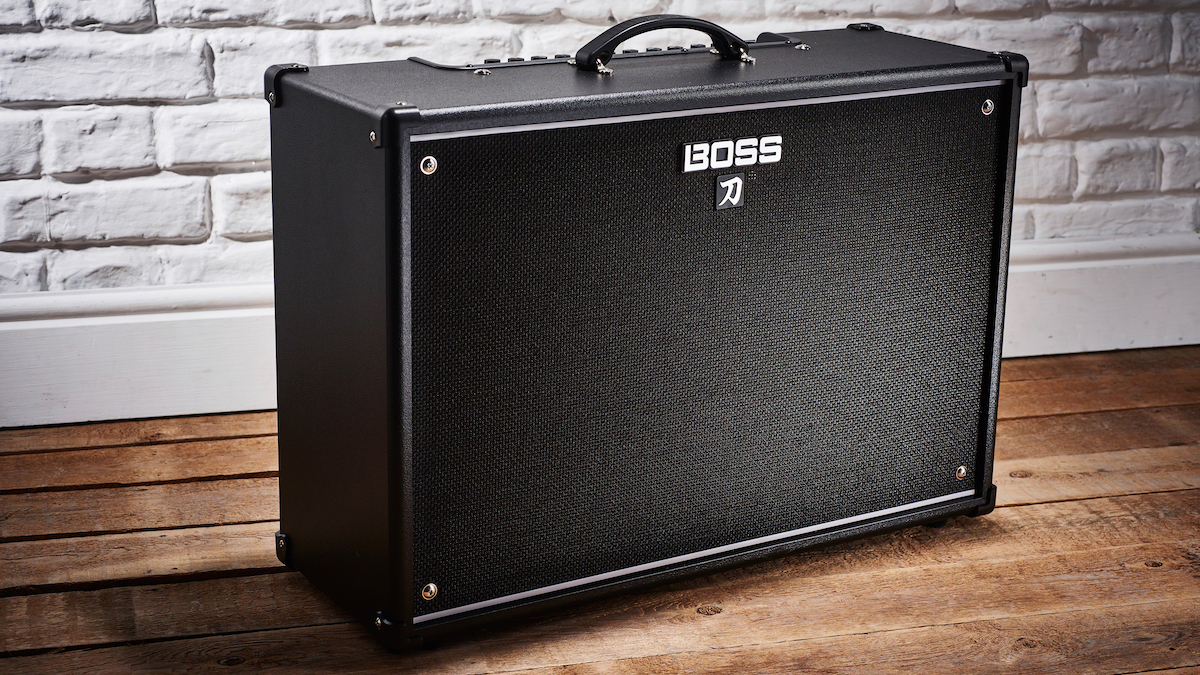
The actual sound that these amps make is difficult to compare objectively because it’s all so personal – what sounds great to one person might not to someone else. From our point of view though, both the Katana and the Catalyst sound amazing. Even when you take the price factor out of it, they’re still good sounding amps. Both can cater for a wide range of music, and don’t have the boxiness or digital sounding artefacts that some other modeling amps suffer from.
On the clean tones, we might lean more towards the Katana. It’s got a lovely, rich, full low-end that nicely replicates what you’d get with some classic tube amps. We really like the Boutique setting on the Catalyst though – it does that on-the-edge-of-breakup sound beautifully – you can dial that in on the Katana, but we reckon the Line 6 does have the edge here, if that’s your thing.
Both amps can do crunch and high gain well too. They can sound a little fizzy, depending on your settings and the guitar you’re using, but it’s easy enough to tweak your way out of that. The Catalyst probably sounds more like a modern amp, particularly on the higher gain settings, with more chunky bottom end, and the Katana is a little more classic sounding, with really punchy mids. The effects on both amps are great too – there’s a fantastic range, and they’re all up to a super high standard.
Winner: It’s a draw. These amps don’t necessarily sound the same – they do a very similar thing, but in a different way and neither one is better per se. Given that they’re the same price as some of the more expensive pedals on the market, we don’t see why there isn’t room for both, if budget allows!
Boss Katana vs Line 6 Catalyst: Hardware & feature set
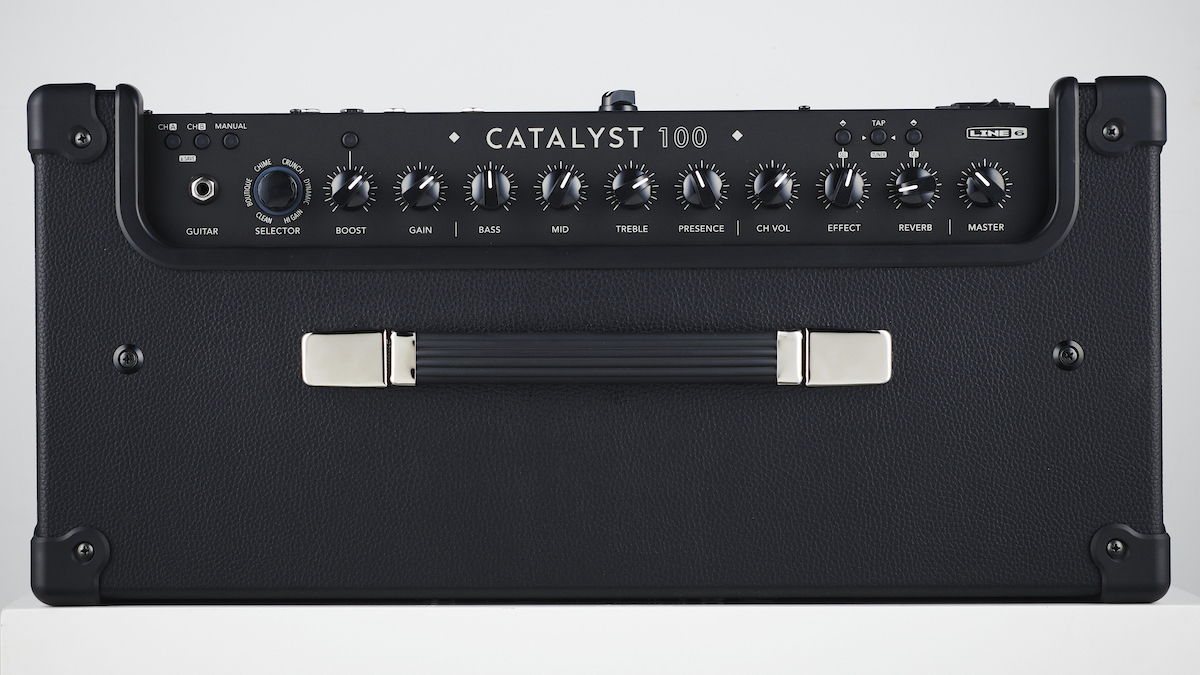
Both the Boss Katana and the Line 6 Catalyst are fairly evenly matched in terms of features, though the latter does have a few added bonuses.
The Katana has four main electric guitar settings, plus an acoustic setting for use with electro-acoustics (it’s not necessarily recommended by Boss, but you can also plug a bass into it on this setting and get some decent results). There’s then a variation switch that gives you a slightly different flavor for each setting, giving you a total of 10 different core sounds. The Catalyst has six different amp settings, but then also has a boost function that acts slightly differently depending on the amp model you’re using.
Both amps use specially-designed 12” speakers allowing for a wide frequency range, with a powerful low end, and clear and present highs. A relatively common mod to both amps is to upgrade the speaker to something like a Celestion.
The Catalyst does have a few extra features that gives it the slight edge here. It’s got a tuner on board – it’s not as clear as something like a clip-on, as it doesn’t tell you the note you’re playing, just whether you’re flat, sharp or in tune, but it’s better than the no tuner at all on the Katana. What might win some players over is that the Catalyst has an effects loop on all models, whereas the Katana only has it on the 100W amps.
Winner: The Catalyst has to come out on top here as it features an effects loop on all of its models, plus the onboard tuner is really useful.
Boss Katana vs Line 6 Catalyst: Build & design
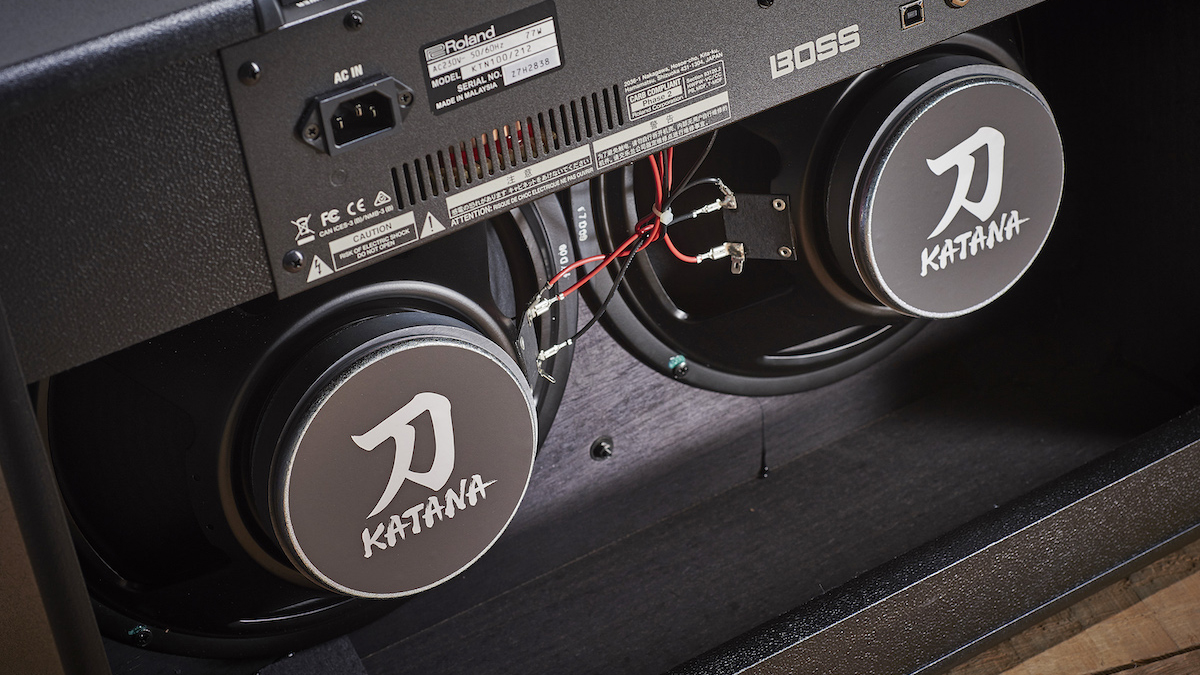
It’s fair to say that both of these amps are built well, especially considering their price point. All the knobs feel quality – they move easily, but have a nice amount of resistance to them so you don’t change your settings drastically by accident. They also both look cool, with sleek and unfussy designs.
The Catalyst does have a bigger cabinet, which contributes somewhat to the sound, giving it slightly more bottom end on many of the settings. The size can go either way – some players prefer a smaller amp as they’re more compact and can be easier to transport, whereas a bigger amp can be more dominating on stage, visually.
In terms of weight, they aren’t too dissimilar. With the lower wattage models, the Katana is a bit lighter. The 100W models are about the same, and for the 2x12 amps, the Katana is nearly a pound or so heavier. So all in all, they’re about the same.
Winner: Draw. Despite their modest price tags, both amps are built to a good standard. The Catalyst is slightly bigger which can be seen as an advantage and a disadvantage, so it’s fair to put them at level pegging here.
Boss Katana vs Line 6 Catalyst: Ease of use
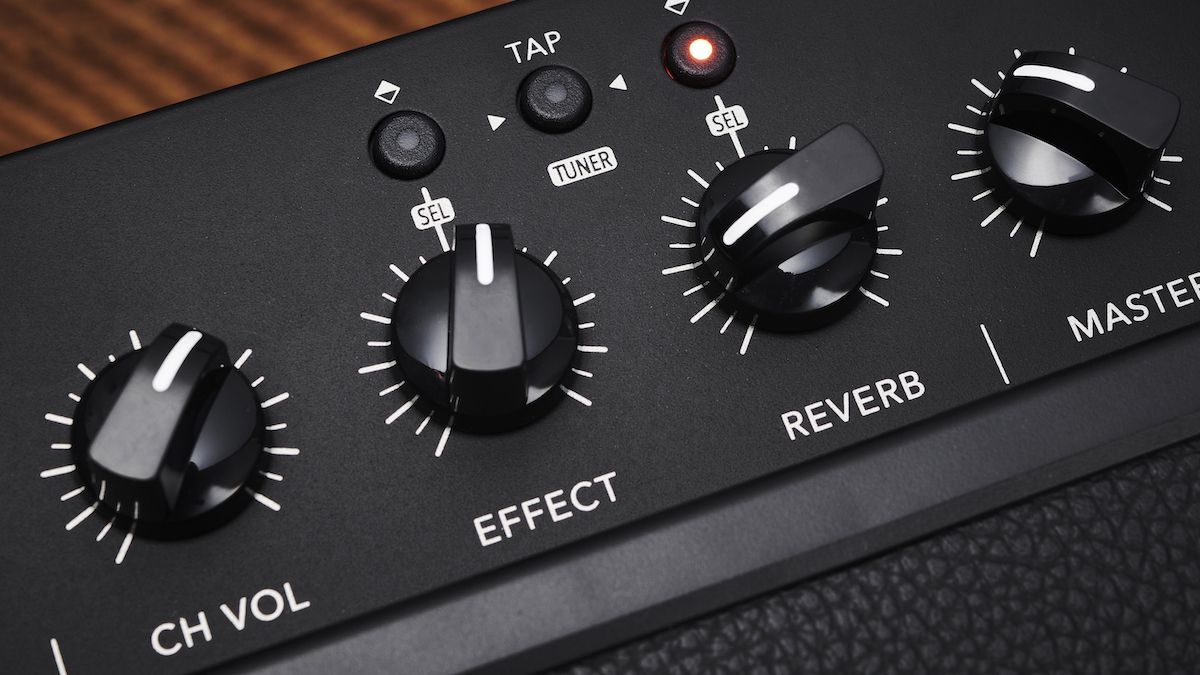
For dialing in your core tone, both the Katana and the Catalyst are super easy to use. Simply choose your amp model, dial in your gain and tweak using the three band EQ section to get your tone sitting where you need it to. Neither amps have digital menus to navigate – just old fashioned buttons and knobs. However, it’s the effects section where the biggest difference lies in terms of their ease of use.
You might get more options in terms of effects with the Catalyst, for example it has six different reverbs and six delays, but to access them, you need to press and hold a button down, then select them using the knob you use to browse the amp types. You also have to use this method for selecting a different effect type.
On the Katana, it’s more straightforward – the effects are dialed in with their own knobs and buttons. This is actually a fairly major factor, as the Katana’s ease of use has been one of its strongest selling points over the years and, for us anyway, the Catalyst doesn’t quite match up to it in this department.
Winner: Katana. There’s no menu scrolling to be found on either of these amps, however, the effects section is a lot easier to navigate on the Katana. If you’re wanting to make changes on the fly to your effects at a rehearsal or gig, then you’ve got a little more work to do on the Catalyst.
Boss Katana vs Line 6 Catalyst: Verdict
Overall, it’s difficult to say whether either the Katana or the Catalyst is better than the other. They really are level in terms of the quality tones they produce, versatility, how they’re built etc.
To our ears, the clean tones sounded a bit better on the Katana, but then that tonal area you get just before an amp breaks up was won by the Catalyst. The crunch and higher gain sounds are different on these amps, but both are very good. You’ve then got a good range of effects on both amps – the Catalyst has a few more options, but really you’re very well covered with either option.
The Catalyst has a few more tricks up its sleeve, like an onboard tuner and effects loop on all models, but the Katana is slightly easier to use, particularly with the effects section. Having to hold buttons down and turn knobs simultaneously like you do with the Catalyst might prove tricky mid-gig.
These really are two extremely good amps, though. Regardless of how much they cost (the fact they’re affordable is a very welcome bonus), both deliver great tones and cover a massive musical range so will no doubt please both beginners and pros alike.
All the latest guitar news, interviews, lessons, reviews, deals and more, direct to your inbox!
After spending a decade in music retail, I’m now a freelance writer for Guitar World, MusicRadar, Guitar Player and Reverb, specialising in electric and acoustic guitars, bass, and almost anything else you can make a tune with. When my head’s not buried in the best of modern and vintage gear, I run a small company helping musicians with songwriting, production and performance, and I play bass in an alt-rock band.

